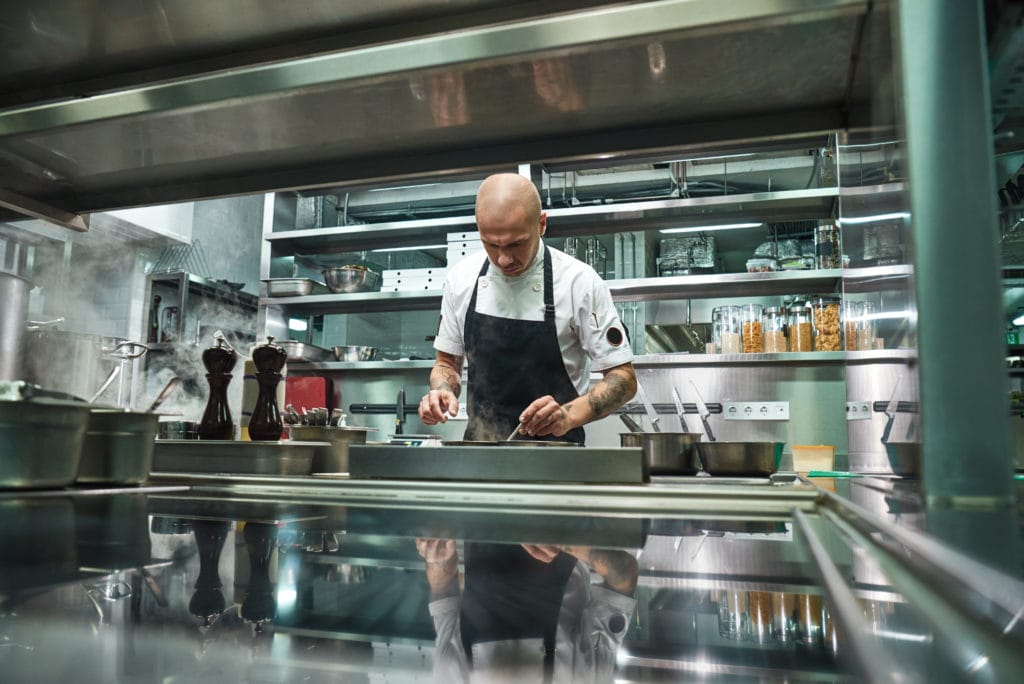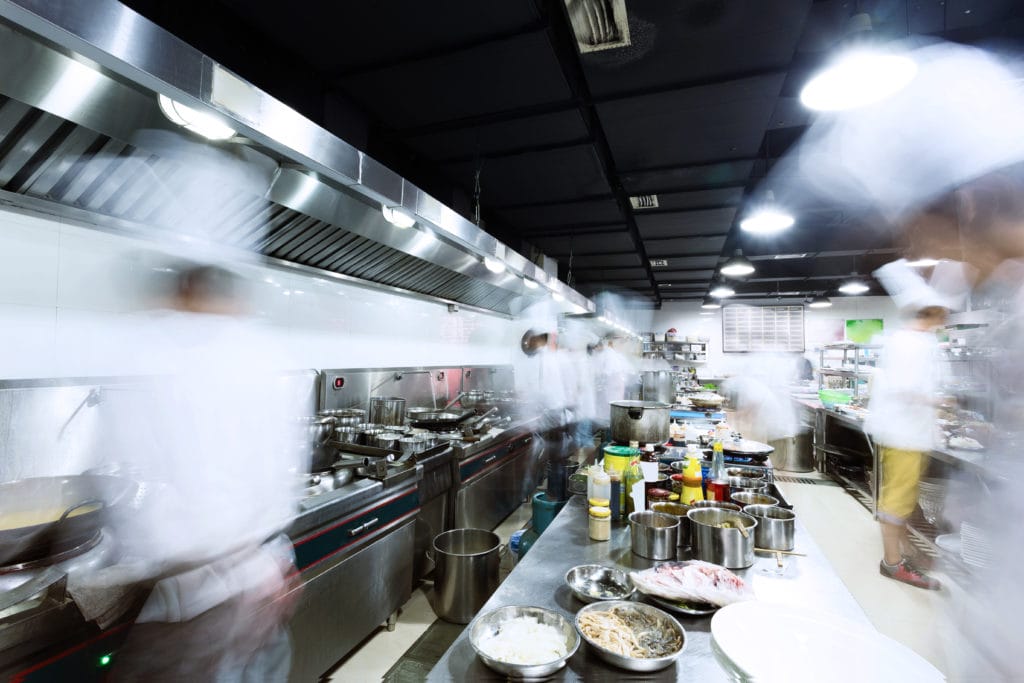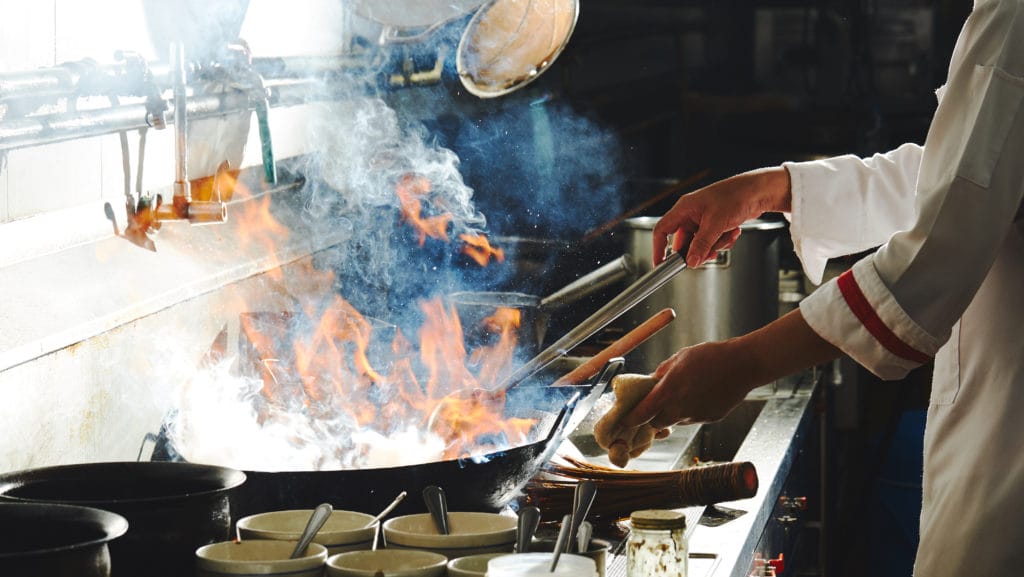Last Updated: January 23, 2024
Starting a food business is hard work. One of the barriers that many new business owners face is finding a licensed commercial facility or commissary kitchen where they can produce their food legally.
The cost to build a commercial kitchen ranges from $40,000 to $200,000. And even taking out a long-term lease on a kitchen can be financially risky before you know if your company will thrive. Also, you could find a restaurant with available kitchen time, but they often come with scheduling and storage limitations.
None of these options are great for someone just starting a business. So what’s an aspiring food entrepreneur to do?
Fortunately, in recent years, commercial kitchens have become increasingly popular and just might be the perfect solution to your culinary business needs. Let’s take a look at what commercial kitchens are and why you might want to consider using one for your business.
What Is a Commercial Kitchen?
Commercial kitchens (also known as a shared-use, commissary, incubator, or ghost kitchens) are commercially licensed spaces where chefs, bakers, caterers, and other culinary professionals can prepare their goods legally while providing the scheduling and budgetary flexibility that many small businesses need.
There are several ways to rent a licensed commercial kitchen, and the method can vary. Some charge an hourly or daily rate to use the space, while other kitchens charge for monthly memberships. Upon renting the space, you’ll share otherwise expensive resources like cold storage, cooking equipment, and cleaning supplies with other food entrepreneurs.

What Are the Benefits of Renting a Commercial Kitchen?
Finding a commercial kitchen to call home comes with many benefits. Let’s take a look at some of the biggest advantages below.
Affordable Rates
Most commercial kitchens charge hourly or daily rates, which is pretty affordable compared to other options. On average, you can expect to pay $15–$45 per hour to rent a commercial kitchen, which is far more budget-friendly than building your own.
It also allows for scheduling flexibility, so you never have to pay for time or space that you aren’t going to use.
To bring the cost down even more, you can avoid renting the kitchen during the busiest hours or even share the space at the same time with another food business. Remember that you may also be able to negotiate with the owners over the price of rent and lease terms.
Community Atmosphere
When you join a commercial kitchen, you become part of a culinary community that can support and assist you in your professional endeavors. This networking with fellow professionals can be invaluable as you grow your business, make connections in the industry, and increase your presence in the community.
Whether or not you choose to share the kitchen at the same time with another business, you will run into other business owners as you arrive or leave the premises. This is a great opportunity to make friends in the industry who can become a great source of support and knowledge.
Peace of Mind
Commercial kitchens can provide peace of mind by knowing you won’t risk getting shut down by the health inspector since the kitchen is licensed and insured. While you still need your own product liability insurance, food handlers card, and a business license, these are small potatoes compared to the expense of owning your own licensed space or the unique risks that accompany cooking from home.
Since shared-use kitchens require all of their members to have a business license, commercial kitchen insurance, and food handling training, you work alongside other businesses that operate legally. You can rest easy knowing another business’ risky behavior won’t shut you down.
Additional Training
Many shared kitchens provide additional resources and education like food safety training, access to industry mentors, bookkeeping classes, and sourcing and sales opportunities. All of these things can help support you in the early days of your business and help you grow it as well.
Where Do I Find a Commercial Kitchen?
In response to the growing desire to find clean, friendly, and affordable licensed spaces for food entrepreneurs to rent, our friends at The Food Corridor built a commercial kitchen directory website called The Kitchen Door. It provides an easy way for you to find and connect with professional kitchen spaces in your area. Simply search the site by city or zip code to find available kitchens nearby.
How Do I Choose a Commercial Kitchen to Rent?
Once you have a list of kitchens that might be a good fit, it’s important to choose the right one for your food business. Be sure to consider the below:
- What equipment you’ll need
- How much and what type of storage space you require
- How much support you want from the kitchen staff
- What operating hours will work with your schedule
- If the kitchen culture is a good fit for you and your team
Don’t forget to ask about extra perks like demo space, business services, conference rooms, and more! Once you have selected a few kitchens that might meet your needs, use the “Contact Kitchen” feature on The Kitchen Door to request a tour of the facility.
You’re almost ready to get cooking!

What Is The Kitchen Door?
By partnering with the right commercial kitchen, your business can keep overhead costs down, reduce risk, and increase your chance of success. The Kitchen Door was created to help food entrepreneurs like you succeed by making it easy to find fully equipped, commercially licensed kitchens for rent.
Its mission is to enable efficiency, growth, and innovation for local food businesses.
The Kitchen Door is unlike other search engines. Their team is actively working to serve you regularly updated information and a comprehensive list of available kitchens. So whether you’re a chef, caterer, baker, food truck, or any other food entrepreneur, The Kitchen Door will help you find an extraordinary place where you can legally cook!
Do you have a kitchen you want to rent to emerging food entrepreneurs? Make extra revenues in your off-time and connect with qualified renters easily. See how The Food Corridor makes getting started even easier.
The Kitchen Door is an official FLIP Insurance partner. To learn more about FLIP and how our insurance policies can benefit your company, check out our services and protect your business in 10 minutes or less today!

By Alex Hastings
Alex is a Marketing Copywriter at Food Liability Insurance Program (FLIP). In her free time, she enjoys reading, birding, traveling, and finding any excuse to get brunch.



